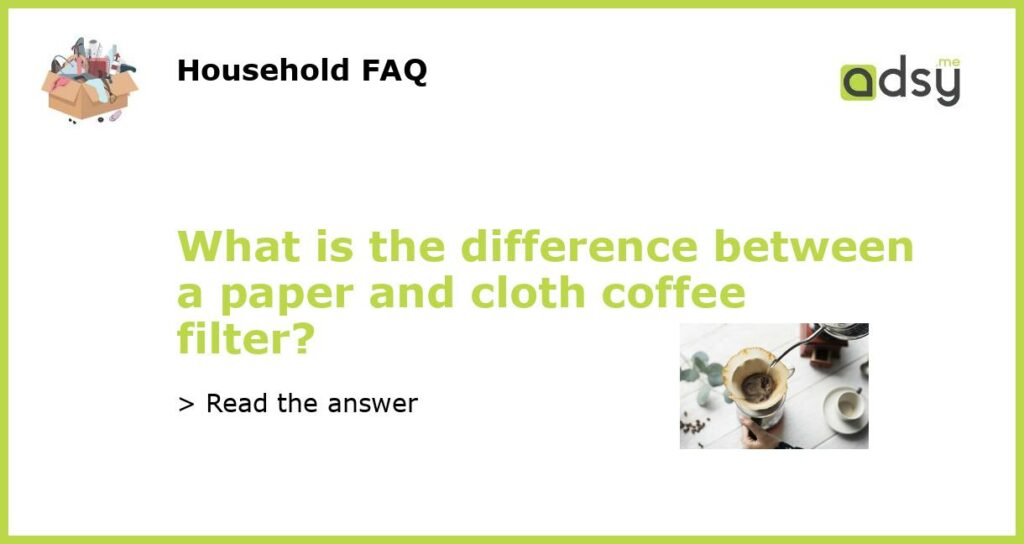Paper vs Cloth Coffee Filters: What’s the Difference?
When it comes to brewing your morning cup of coffee, the type of filter you use can greatly impact the taste and quality of your brew. While many coffee lovers are familiar with paper filters, cloth filters are also becoming increasingly popular. In this article, we’ll explore the main differences between paper and cloth coffee filters, and help you determine which one may be best for you.
Composition and Durability
Paper filters are typically made from biodegradable materials like wood pulp or hemp, and come in a range of thicknesses and textures. They are generally disposable, making them convenient for a quick and easy cleanup. Cloth filters, on the other hand, are often made from natural fibers like cotton or hemp, and can last for months or even years with proper care. They are washable and reusable, and often come with a stainless steel or nylon frame for added durability.
Filter Properties
Paper filters tend to be finer than cloth filters, resulting in a cleaner and more neutral tasting coffee. They are also effective at removing oils and sediments from the brew, which can contribute to bitterness and over-extraction. Cloth filters, on the other hand, allow more of the coffee oils and flavors to pass through, resulting in a fuller and more complex taste. They can also impart a slight texture to the coffee, which some connoisseurs find desirable.
Cost and Environmental Impact
Paper filters are generally cheaper than cloth filters on a per-use basis, but they can quickly add up in cost over time. They are also not as sustainable, as they can only be used once and then disposed of. Cloth filters require a higher upfront cost, but can be reused multiple times, making them more cost-effective in the long run. They also have less of an environmental impact, as they can be washed and reused instead of ending up in a landfill.
Brewing Methods
Paper filters are more commonly used in drip coffee makers and pour-over brewers, where the water passes through the filter and extracts the coffee flavor. Cloth filters are more commonly used in French press or espresso machines, where the water is in direct contact with the coffee grounds and the filter is used to separate the liquid from the solids. However, both paper and cloth filters can be used in a variety of brewing methods, and it ultimately comes down to personal preference.
Maintenance and Cleaning
Paper filters require no cleaning or maintenance, as they are simply disposed of after use. Cloth filters, on the other hand, require a bit more care. They should be rinsed immediately after use to remove any debris, and then washed with hot water and soap to remove any residual oils or flavors. They should be allowed to dry completely before storing to prevent mold or mildew growth.
In conclusion, both paper and cloth coffee filters have their pros and cons, and the choice ultimately comes down to personal preference. If you value convenience and a clean taste, paper filters may be the way to go. If you prefer a fuller and more complex flavor, and are willing to put in a little extra effort, cloth filters may be your best bet.






